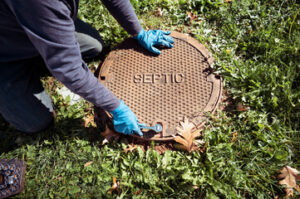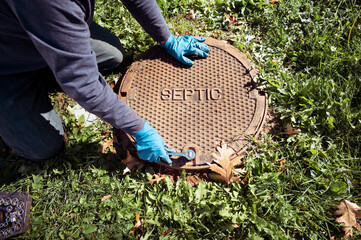If you have a septic tank, there are certain things you should do to maintain it. This will save you money on repairs in the future and prevent costly sewage back-ups.
Inspect your septic system regularly and pump it out when needed. Frequent pumping helps keep your septic tank clean, avoids sewage back-ups, and keeps it functioning properly. Click on https://www.boulderplumberco.com to learn more.
Septic tanks are used to treat and dispose of sanitary waste from homes, apartments, businesses and other buildings. They are often located in rural areas where sanitary sewers are not available.
Sludge and scum build up in the tank over time. Septic tank maintenance includes regular pumping and inspection of the septic tank for cracks or leaks.
In most cases, the solids from wastewater settle to the bottom of the septic tank, where bacteria break down and digest the waste. The partially treated wastewater then flows out into a leaching field and slowly soaks into the soil. The bacteria then continue to breakdown the waste as it enters the soil, allowing it to be naturally filtered.
When a septic system malfunctions, the effluent (liquid from the drain pipes) can flow through a broken pipe and contaminate the surrounding area with harmful waste water. This can lead to illnesses such as diarrhea, stomach and intestinal problems, respiratory issues and gastrointestinal infections that affect children.
This is why it is important to have a septic system inspected and pumped regularly, and to use caution when driving or working on the tank. It is also important to avoid placing heavy equipment or tools above the tank because it may cause a crack that effluent can ooze out.
It is also important to avoid flushing cigarettes, diapers, feminine hygiene products, wipes and paper towels into the septic tank because these products can build up in the sludge layer and create a thick scum layer that requires treatment by a professional. The garbage disposal grinds food product that settles to the sludge layer, so it is best to compost vegetable scraps instead of disposing them down the toilet.
Overuse of the septic tank can also contribute to sludge buildup and scum formation. It is recommended that the septic tank be pumped every 2 to 5 years, depending on the size of your home or business.
If the septic system is located too close to your well, it can contaminate the water that you use for drinking, cooking and bathing. Most states and local governments require that wells be placed at least a specific distance away from septic systems.
When a septic system is not properly maintained, it can lead to serious health problems. This is because the waste that flows through the system can contaminate local water supplies, soil, and groundwater.
One of the most common types of septic issues that result from not keeping up with regular maintenance is septic sludge buildup. This sludge is composed of human feces, food scraps, and other solid wastes that accumulate in the bottom of the tank over time.
If left untreated, this sludge can cause disease-causing microbes to multiply inside the tank and infect your surrounding area. This can lead to severe gastrointestinal illnesses such as dysentery and typhoid fever.
In addition, the presence of nitrate in your wastewater can pose serious health risks to infants. Nitrate can impede the ability of the blood to carry oxygen, which can result in methemoglobinemia or “blue baby syndrome.”
The toxins that are released from the sludge in a failing septic system can pose significant health concerns for your family and pets. For instance, the odors and gases that are produced can cause respiratory ailments such as asthma. Methane gas is also a threat, as it can displace oxygen in the air and cause respiratory difficulties for those living in your home.
These toxins can affect the health of anyone who comes into contact with them, including animals, children, and people with compromised immune systems. Fortunately, regular septic tank maintenance can help to prevent these problems from occurring.
Moreover, routine inspections by a professional can detect septic issues in their early stages. This will help you avoid the costly expenses of repairing or replacing your septic tank.

